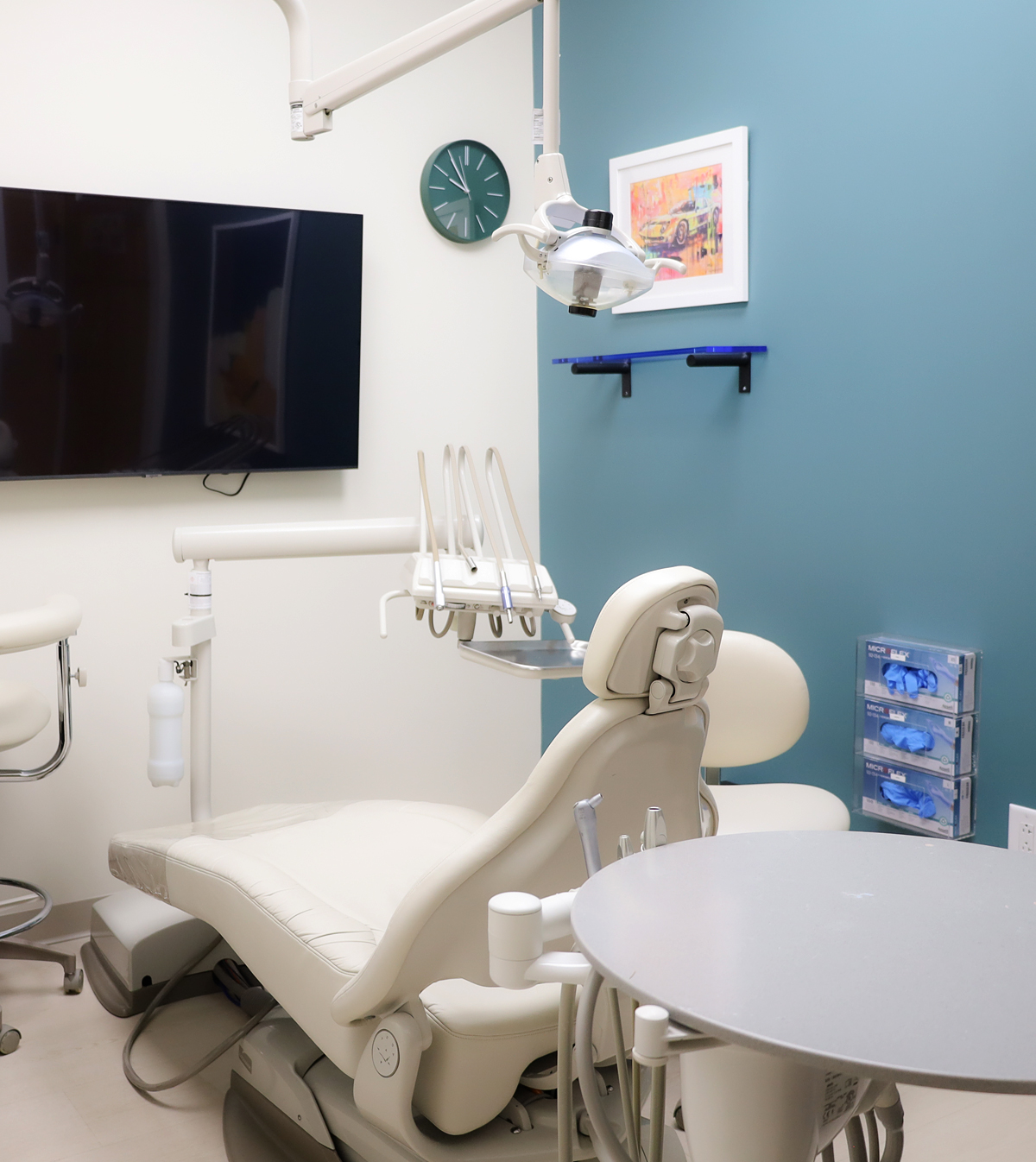Oral Surgery
What To Expect
Tooth Extractions
When the damage or decay is excessive, the tooth should be removed.
Socket Graft
Adds material to the jawbone to improve the shape and contour of the socket after a tooth extraction.
Rebuilding Graft
Preparing deteriorated gums prior to adding dental implants
Sinus Graft
Two ways to add a dental implant when the sinus wall is thin
Oral Surgery FAQs
We offer our expertise to you for all your dental needs. Please reach out for additional details – we’re here to assist you.
What is a tooth extraction?
Even with proper dental care, teeth age and can decay or break. Many damaged teeth can be repaired with fillings or crowns, but when the damage or decay is excessive, the tooth should be removed. Getting a tooth extracted may not seem complicated, but in most cases it requires a visit to an oral surgeon. It’s better to take care of it sooner rather than later if your dentist has said that you need a tooth extracted. We’ll provide you with a customized treatment plan so you know exactly what you’ll be getting.
Common Reasons For Needing A Tooth Removed:
- Impacted wisdom teeth
- Severe decay
- Serious broken or fractured teeth
- Infection
- Gum disease
- Crowded mouth
- Tooth pain
What are the different types of tooth extractions?
Simple Tooth Extractions
Simple tooth extractions can be done without making any incisions or special techniques. This method is typically referred to as simple extraction, and it may be performed by a general dentist or an oral surgeon. When patients are in need of a more complicated tooth extraction process, they are most likely to be referred to an oral & maxillofacial surgeon, like Dr. Crisp.
Surgical Tooth Extractions
Surgical tooth extraction may occur under some form of sedation or anesthesia at our office. The time required to perform the procedure will depend on many factors:
- Position of the tooth
- Length and curvature of the root(s)
- Thickness of bone surrounding the tooth
- The patient’s physical health
When gum tissue covers the tooth, an incision is required to expose the tooth for removal. Similarly, if bone covers part of the tooth, the surgeon will remove bone to fully expose and extract the tooth. If an incision is needed, sutures may be placed to aid with healing.
With the exception of wisdom teeth, dental implants are recommended for the replacement of extracted teeth to prevent bone loss and improve functionality. Surgical tooth extraction is simply the first step on the road to improved oral health.
What are the different types of tooth extractions?
Simple Tooth Extractions
Simple tooth extractions can be done without making any incisions or special techniques. This method is typically referred to as simple extraction, and it may be performed by a general dentist or an oral surgeon. When patients are in need of a more complicated tooth extraction process, they are most likely to be referred to an oral & maxillofacial surgeon, like Dr. Crisp.
Surgical Tooth Extractions
Surgical tooth extraction may occur under some form of sedation or anesthesia at our office. The time required to perform the procedure will depend on many factors:
- Position of the tooth
- Length and curvature of the root(s)
- Thickness of bone surrounding the tooth
- The patient’s physical health
When gum tissue covers the tooth, an incision is required to expose the tooth for removal. Similarly, if bone covers part of the tooth, the surgeon will remove bone to fully expose and extract the tooth. If an incision is needed, sutures may be placed to aid with healing.
With the exception of wisdom teeth, dental implants are recommended for the replacement of extracted teeth to prevent bone loss and improve functionality. Surgical tooth extraction is simply the first step on the road to improved oral health.
What is a socket graft?
The removal of teeth is sometimes necessary because of pain, infection, bone loss, or due to a fracture in the tooth. The bone that holds the tooth in place (the socket) is often damaged by disease and/or infection, resulting in a deformity of the jaw after the tooth is extracted. In addition, when teeth are extracted the surrounding bone and gums can shrink and recede very quickly, resulting in unsightly defects and a collapse of the lips and cheeks.
Jaw deformities from tooth removal can be prevented and repaired by a procedure called a socket graft.
A socket graft adds material to the jawbone to improve the shape and contour of the socket after a tooth extraction. Simply, it is a type of bone graft that is used to create a suitable area for implants that replace the former tooth.
What is a sinus graft?
Dental implants need bone to hold them in place. When the sinus wall is very thin, it is impossible to place dental implants in this bone.
There are two types of sinus augmentation surgeries:
- Sinus lift: The direct procedure of adding material to the upper jaw in the area of the sinus to create space for implants in the upper jaw.
- Sinus bump: The indirect procedure of pushing the sinus upward and adding grafting bone to increase to better allow for dental implants to be placed.
What is a rebuilding graft?
A rebuilding graft is a procedure that aids greatly in preparing deteriorated gums prior to adding dental implants or when gum tissue has receded. Usually, material from the palate is used to repair damaged areas of the gums.
Wisdom Teeth
Wisdom Tooth Extraction
We offer the removal of wisdom teeth in a safe, comfortable environment. Contact us today for a consultation.
Wisdom Teeth Extraction
Wisdom teeth are the last adult teeth to erupt into the mouth. Most people have four wisdom teeth at the back of the mouth — two on the top and two on the bottom.
Impacted wisdom teeth are third molars that do not have enough room to emerge or develop normally.
Impacted Wisdom Teeth
Impacted wisdom teeth can result in pain, damage to other teeth, and other dental problems.
In some cases, impacted wisdom teeth may cause no apparent or immediate problems. However, because they are hard to clean, they may be more vulnerable to tooth decay and gum disease. When wisdom teeth are still developing, their removal is recommended if they do not have enough space to erupt fully.
We offer the removal of wisdom teeth in a safe, comfortable environment with IV sedation. To learn more about wisdom teeth removal, call today to schedule an evaluation.
A dental exam is a crucial part of maintaining good oral health. During the exam, your dentist will thoroughly assess your teeth and gums to identify any potential issues. Our Raleigh office is equipped to address all your dental needs.
- Early detection of problems: Regular exams allow your dentist to identify and address potential issues early on, which can prevent more serious problems and costly treatments later.
- Maintaining oral health: Regular cleanings and professional guidance on oral hygiene can help you maintain healthy teeth and gums.
- Preventing serious health issues: Some studies suggest a link between poor oral health and certain systemic diseases, such as heart disease and diabetes.
For more information on the importance of dental exams, you can visit the following resources:
- The American Dental Association (ADA):
https://www.ada.org/ - The Centers for Disease Control and Prevention (CDC):
https://www.cdc.gov/oral-health/index.html


Confidence Looks Good on You
Picture this: You leave work and stroll through downtown Raleigh, heading to your self-care cleaning appointment. A cozy seat in our stylish lobby and a complimentary beverage are ready for you. Soon, you’re escorted to one of our designer Studios for your personalized appointment. Before you know it, you’re walking out with a chic tote of handpicked dental care products. Welcome to modern dentistry, where your spa-like experience awaits.
